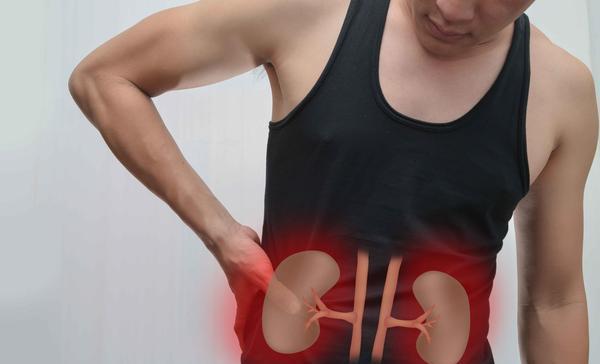We eat rice, fruits and vegetables and various meats every day, drink water, but the body can grow "stones", such as kidney stones are one of the most common urinary system stones in mainland China.
Of course, this is not the real stone growing in the kidneys, but some crystalline substances, organic substances in the kidneys abnormally aggregated to form a substance similar to stone!

According to the current clinical data, the appearance of kidney stones is related to a variety of factors, including age and sex, race, genetics, environmental factors, bad eating habits and so on. In mainland China, the incidence of kidney stones in men is significantly higher than that in women, especially in young adults, and there is no obvious difference in the incidence of left and right sides.
The symptoms of kidney stones, mild or severe, are mainly related to the specific location, shape and size of the stones, whether there is infection and obstruction. Usually, most patients with kidney stones have no symptoms, unless the kidney stones fall from the kidneys into the ureter, they may have obvious symptoms, such as renal colic, nausea and vomiting, irritability, bloating, hematuria, etc.
So the question is, after the emergence of kidney stones, how to treat it?
According to the current clinical data, the treatment of kidney stones can be divided into three parts:
1. General treatment
General treatment is through life and dietary adjustments, such as patients need to drink a lot of water, the daily water intake is at least 2000-3000ml or more, so that smaller stones can be excreted from the body.
In addition, patients also need to adjust their diet, such as avoiding high oxalic acid, high purine foods, etc. For patients with idiopathic hypercalciuria, calcium intake should also be restricted, and a low-salt diet should be maintained as much as possible to control sodium intake.
In addition, if the patient is caused by pathological factors, it is also necessary to actively treat the primary disease and remove the cause of stone formation to avoid stone formation and recurrence;
2. Symptomatic treatment
Symptomatic treatment can be divided into three small parts, the first is analgesia, as mentioned above, kidney stones may be combined with renal colic, at this time the need for clinical antispasmodic analgesia, such as M-type choline receptor blockers, intramuscular injection of progesterone, calcium blocker nifedipine, have the effect of relieving renal colic.
The second part is infection control, in which patients should use antibiotics to control and prevent infection in addition to discharging stones to relieve symptoms of obstruction. The third part is the treatment of hematuria, if the kidney stones are combined with hematuria visible to the naked eye, it can be treated with related drugs;
3. Surgical treatment
If the patient's pain cannot be relieved by medication, if the stone cannot be excreted by general treatment, and its diameter has grown to a certain extent, surgical measures need to be considered.
Common clinical treatments include extracorporeal shock wave lithotripsy, intraureteral stent removal, ureteroscopic lithotripsy, percutaneous nephrolithotomy lithotripsy, laparoscopic surgery, etc. If the patient develops an emergency, renal puncture and drainage is also required if necessary.
Finally, I would like to remind everyone that in most cases, the appearance of kidney stones is related to poor life and eating habits. Therefore, if you want to prevent kidney stones, you must first adjust your diet.
Once there is a sudden sudden appearance of severe renal colic symptoms, nausea and vomiting, it is likely to be a signal of the onset of kidney stone emergency, and it is necessary to seek medical examination in time.